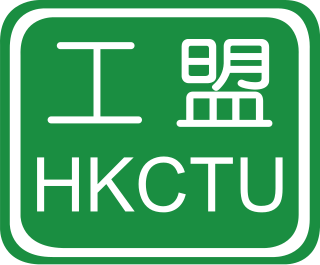A trade union, often simply referred to as a union, is an organization of workers intent on "maintaining or improving the conditions of their employment", such as attaining better wages and benefits, improving working conditions, improving safety standards, establishing complaint procedures, developing rules governing status of employees and protecting the integrity of their trade through the increased bargaining power wielded by solidarity among workers.

Syndicalism is a revolutionary current within the left-wing of the labor movement that seeks to unionize workers according to industry and advance their demands through strikes with the eventual goal of gaining control over the means of production and the economy at large. Developed in French labor unions during the late 19th century, syndicalist movements were most predominant amongst the socialist movement during the interwar period which preceded the outbreak of World War II.
Anarcho-syndicalism is a political philosophy and anarchist school of thought that views revolutionary industrial unionism or syndicalism as a method for workers in capitalist society to gain control of an economy and thus control influence in broader society. The end goal of syndicalism is to abolish the wage system, regarding it as wage slavery. Anarcho-syndicalist theory generally focuses on the labour movement. Reflecting the anarchist philosophy from which it draws its primary inspiration, anarcho-syndicalism is centred on the idea that power corrupts and that any hierarchy that cannot be ethically justified must be dismantled.

The General Confederation of Labour is a national trade union center, founded in 1895 in the city of Limoges. It is the first of the five major French confederations of trade unions.

The Solidaires or Solidaires Unitaires Démocratiques (SUD) is a French group of trade unions.

The Hong Kong Confederation of Trade Unions (HKCTU) was a pro-democracy labour and political group in the Hong Kong. It was established on 29 July 1990. It had 160,000 members in 61 affiliates and representation in the Legislative Council of Hong Kong (LegCo) to challenge government policies and push for legal protection of worker and trade union rights. It was one of the two most influential labour groups in Hong Kong, with the other one being the pro-Beijing Hong Kong Federation of Trade Unions.
The Australian labour movement began in the early 19th century and since the late 19th century has included industrial and political wings. Trade unions in Australia may be organised on the basis of craft unionism, general unionism, or industrial unionism. Almost all unions in Australia are affiliated with the Australian Council of Trade Unions (ACTU), many of which have undergone a significant process of amalgamations, especially in the late 1980s and early 1990s. The leadership and membership of unions hold and have at other times held a wide range of political views, including communist, socialist and right-wing views.

The European Trade Union Confederation (ETUC) is the major trade union organisation representing workers at the European level. In its role as a European social partner, the ETUC works both in a consulting role with the European Commission and negotiates agreements and work programmes with European employers. It coordinates the national and sectoral policies of its affiliates on social and economic matters, particularly in the framework of the EU institutional processes, including European economic governance and the EU Semester.

The All India Trade Union Congress (AITUC) is the oldest trade union federation in India. It is associated with the Communist Party of India. According to provisional statistics from the Ministry of Labour, AITUC had a membership of 14.2 million in 2013. It was founded on 31 October 1920 with Lala Lajpat Rai as its first president.
Sud-PTT is a French trade union created in fall 1988 after the exclusion of more radical elements from the CFDT-PTT. CFDT is a union generally considered as the most open for negotiation and reforms. It is sometimes criticized for this approach, sometimes by its own members. In 1988, when French socialist minister Paul Quiles decided to undertake a deep reform of the Post and Telecommunication Administration, the CFDT decided to support him and to exclude those who would not follow its political line. Other reason for this exclusion: several CFDT unions from the Health and the Post and Telecommunications federations located in the Paris region supported wildcat strikes self-organised by the workers.
The history of the Socialist Workers Party begins with the formation of the Socialist Review Group in 1950, followed by the creation of the International Socialists in 1962 and continues through to the present day with the formation of the Socialist Workers Party in 1977.

The Italian General Confederation of Labour is a national trade union based in Italy. It was formed by agreement between socialists, communists, and Christian democrats in the "Pact of Rome" of June 1944. In 1950, socialists and Christian democrats split forming UIL and CISL, and since then the CGIL has been influenced by the Italian Communist Party (PCI) and until recent years by its political heirs: the Democratic Party of the Left (PDS), the Democrats of the Left (DS) and currently the Democratic Party (PD).

Autonomism, also known as autonomist Marxism is an anti-capitalist left-wing political and social movement and theory. As a theoretical system, it first emerged in Italy in the 1960s from workerism. Later, post-Marxist and anarchist tendencies became significant after influence from the Situationists, the failure of Italian far-left movements in the 1970s, and the emergence of a number of important theorists including Antonio Negri, who had contributed to the 1969 founding of Potere Operaio as well as Mario Tronti, Paolo Virno and Franco "Bifo" Berardi.

The Workers' Communist Party is a communist party in Italy. It was created in 2006 by the Trotskyist breakaway wing of the Communist Refoundation Party led by Marco Ferrando. The PCL is the Italian section of Coordinating Committee for the Refoundation of the Fourth International.
Labor Notes is an American non-profit organization and network for rank-and-file union members and grassroots labor activists. Though officially titled the Labor Education and Research Project, the project is best known by the title of its monthly magazine. The magazine reports news and analysis about labor activity or problems facing the labor movement. In its pages it advocates for a revitalization of the labor movement through Social Movement Unionism and union democracy. Labor Notes is based out of Detroit, Michigan, with an East Coast office located in Brooklyn, New York.

General Confederation of Labour was an Italian labor union, founded in 1906, under the initiative of socialist militants. Having survived the Fascist dictatorship and the Second World War as an underground organization, the CGL joined the cross-party CGIL labor federation in 1945.
On 15 October 2011 about 200,000 people gathered in Rome, Italy to protest against economic inequality and the influence of the European Commission, the European Central Bank, the International Monetary Fund on politics and also against the government of Silvio Berlusconi. The protests began in solidarity with the Spanish protests. Many other protests occurred in other Italian cities the same day.
A general strike refers to a strike action in which participants cease all economic activity, such as working, to strengthen the bargaining position of a trade union or achieve a common social or political goal. They are organised by large coalitions of political, social, and labour organizations and may also include rallies, marches, boycotts, civil disobedience, non-payment of taxes, and other forms of direct or indirect action. Additionally, general strikes might exclude care workers, such as teachers, doctors, and nurses.









